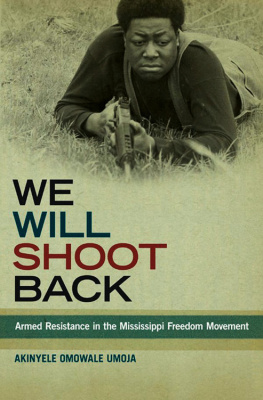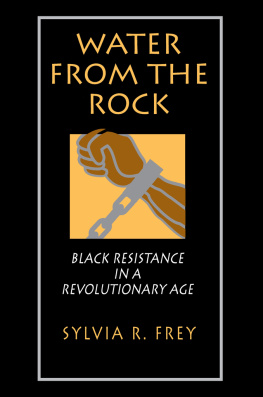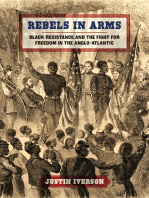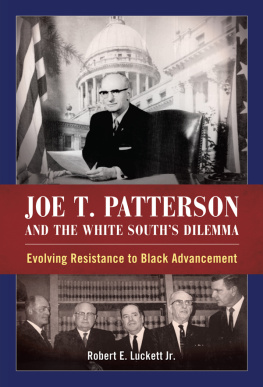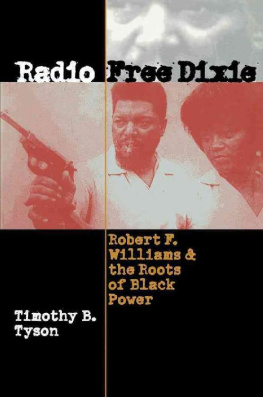We Will Shoot Back
We Will Shoot Back
Armed Resistance in the Mississippi Freedom Movement
Akinyele Omowale Umoja

NEW YORK UNIVERSITY PRESS
New York and London
www.nyupress.org
2013 by New York University
All rights reserved
References to Internet websites (URLs) were accurate at the time of writing. Neither the author nor New York University Press is responsible for URLs that may have expired or changed since the manuscript was prepared.
Library of Congress Cataloging-in-Publication Data
Umoja, Akinyele Omowale.
We will shoot back: armed resistance in the Mississippi Freedom Movement / Akinyele
Omowale Umoja.
p. cm.
Includes bibliographical references and index.
ISBN 978-0-8147-2524-5 (cl: alk. paper)
1. Self-defensePolitical aspectsMississippiHistory20th century. 2. Mississippi
Freedom Project. 3. African AmericansCivil rightsMississippiHistory20th century.
4. African AmericansSuffrageMississippiHistory20th century. 5. Civil rights
workersMississippiHistory20th century. 6. Civil rights movementsMississippi
History20th century. 7. MississippiRace relationsHistory20th century. I. Title.
E185.93.M6U46 2013
323.11960730762dc23
2012046909
New York University Press books are printed on acid-free paper, and their binding materials are chosen for strength and durability. We strive to use environmentally responsible suppliers and materials to the greatest extent possible in publishing our books.
Manufactured in the United States of America
10 9 8 7 6 5 4 3 2 1
I salute my Ancestors and the Elders still living, who fought and died in Mississippi, throughout the United States, and throughout the western hemisphere to assert our humanity in the fight for liberation and social justice.
Ase!!!! Free the Land!!!
Contents
Acknowledgments
This book would not have been possible without the example and influence of my ancestors and elders. My family oral tradition and other information I obtained informed me of my roots in West, West-Central, and East Africa. My ancestors survived the Middle Passage and were captives in Virginia, Georgia, and Louisiana. My Mississippi connection comes from the Delta, where my grandparents, my community were powerful forces in shaping me and this project.
I became active at the tail end of the Black Power Movement in the early 1970s. The Movement served as a New African university for me. My guides in the Movement are too numerous to mention here, as there are many individuals who influenced my development or played a role that contributed to this project. The relationships I developed in the Movement were critical in giving me access to much of the information in this book. I particularly want to acknowledge two of my political education instructors in the Movement, Mamadou Lumumba-Umoja and Adewole Umoja, for emphasizing the importance of the insurgent activism in the southern Black Freedom Struggle and urging me to pay attention to the resistance of laborers and farmers. I was given the assignment of accompanying Queen Mother Audley Moore to speaking engagements in Southern California when I was eighteen years old. Queen Mother Moore often told the story of how she and other Louisiana members of the Universal Negro Improvement Association came to New Orleans to force the police and local officials to allow Marcus Garvey to speak to their assembly in the 1920s. Conversations with and feedback from my Mississippi-born comrades, Watani Tyehimba and Makungu Akinyela, also helped to shape this work. My traveling to Mississippi with Ahmed Obafemi also helped provide background for this work. Tamu and Hekima Kanyama provided valuable first-hand accounts of their ordeal in Mississippi, as well as editorial support.
Friends in Mississippi, particularly in Jackson, provided shelter, food, and companionship that sustained my research trips there. Chokwe Lumumba, his late wife, Nubia, and their children provided a home away from home for me in Jackson. Demetri Marshall and his family openly welcomed me in Claiborne County and treated me as a brother. My comrades Akil and Gwen Bakari, Hondo Lumumba, Mikea Kambui, Halima Olufemi, Safiya Omari, and the rest of my Jackson, Mississippi, family always cared for me. Several people led me to folks to support my work, but I particularly want to recognize Charles Tisdale, Howard Gunn, Hollis Watkins, Willie Owens, Herman Leach, James Miller, Ser Sesh Boxley, Moriba Lumumba, and Tyrone Fat Daddy Davis for their assistance and contribution to this book. One person who helped put me on the right track was Ken Lawrence, who did preliminary work on this project and knew as well as worked with many of the subjects of this text.
Much respect to the community of scholars who gave timely feedback and encouragement. It was at Emory University that I first pursued this topic in Allen Tulloss seminar on southern culture. Professor Tullos encouraged me to pursue the idea of researching armed self-defense in the southern Black Freedom Struggle. Robin D. G. Kelly mentored and guided me even after leaving Emory. Dana White, Dan Carter, and Leroy Davis spent quality time to nurture and challenge me in the dissertation process. Paula Dressel and Marcellus Barksdale also provided significant input and encouragement. Charles E. Jones was crazy enough for hiring me and made sure I had support to continue this work at Georgia State University (GSU). Beatrice Morales and Jacqueline Rouse also provided collegial comments and inspiration. A number of GSU graduate and undergraduate students as well as staff also contributed to this work through archival research, transcription, and other forms of support. My student assistants and volunteers who worked on this project include DeMarcus McCarthy, Andrea Linnear, Tywanda Richardson, Nandi Crosby, Michael Cooper, Nafeesa Muhammad, Latrice Wright, Tiara Banks, and Mawuli Davis. The editing of Kaniqua Robinson was essential to the completion of this project. I will always be indebted to her. I also thank Belinda Futrell and Tiffany Bullock for the administrative support.
Colleagues at other institutions also offered advice and resources that were critical to the completion of the project. Emilye Crosbys interchange and sharing of resources since graduate school is part of a rare collegial relationship that I hope will continue through other mutual projects. University of Southern Mississippi graduate student and journalist Leesha Faulkner shared her personal archives, which included Mississippi State records of police surveillance of civil and human rights activists before they were officially released. Sundiata Cha-Jua offered historiographic advice throughout the project. The encouragement of scholar-activist Gwendolyn Hall helped to motivate me. Other historians who offered critical support include John Dittmer, Curtis Austin, and Kwame Hasan Jeffries.
No historian can complete quality work without archival resources. Several archives and archivists must be mentioned. The Moorland Spin-garn Collections at Howard University, the archives at Tougalou College, the Mississippi Department of Archives and History (MDAH), and the University of Southern Mississippi Special Collections and the Oral History Project provided many of the primary documents of this work. Joellen El Bashir at Moorland Spingarn was very helpful in locating interviews from the Civil Rights Documentation Project. The collections at Emory University were also helpful. Clarence Hunter and Caroline Primer of MDAH (and her husband William) were both critical in finding evidence for corroboration and even informants to be interviewed. Activist archivist Jan Hillegas and the Freedom Information Center also provided valuable support and directed me to Mississippi freedom fighters to be interviewed. The papers of the Southern Conference Educational Fund at GSUs Southern Labor History archives were essential in tracking down corroboration on the activism in northern Mississippi in the late 1970s. Finally, I was blessed to access the papers of the Student Nonviolent Coordinating Committee, the Mississippi Freedom Democratic Party, and the Congress of Racial Equality at the archives of the Martin Luther King Jr. Center for Nonviolent Social Change. A special thanks to Kayin Shabazz for tracking articles down for me at the Woodruff Library at the Atlanta University Center.
Next page
